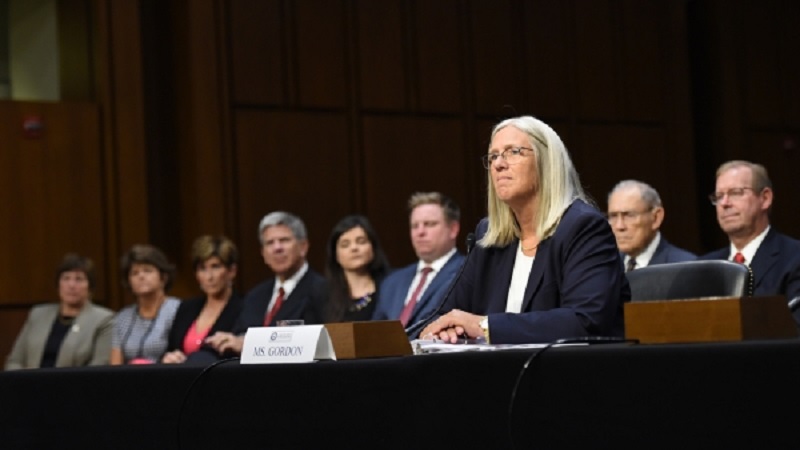
Susan Gordon, Principal Deputy Director of National Intelligence, on Tuesday called for the development of data-sharing frameworks that will improve risk-data sharing between Federal government intelligence agencies and the private sector, as both cooperate to improve security strategies and tactics in a hyper-connected world.
Speaking at the GEOINT Symposium on June 4, Gordon provided a sobering outlook for intelligence agencies charged with protecting U.S. national security and advancing national interests. At the heart of that outlook is the combination of ubiquitous technology and the exponential growth in data that results from it, in an increasingly borderless world in which advanced tech is available to everyone.
“The world is doing what it periodically does – it is changing. The change we are experiencing is a big one,” she said, referring to the ubiquitous advances in technology and what she called “data abundance.”
“Those will challenge so many things we thought” about intelligence work in the service of national security, Gordon said. “The one who is fastest and cleverest will win” in the new environment, she predicted.
“This is not your mother’s national security,” she declared.
The intelligence community’s path forward, she said, will be rooted both in policy and in innovation.
On the policy front, Gordon called for data-sharing frameworks between the government and industry that enable sharing “with all our partners” and that build on parties’ shared responsibilities.
“I sense we can do more” to help each other, “but we don’t have the frameworks,” Gordon said.
And in the innovation arena, Gordon said the intelligence community needs to rethink current practices and not be afraid to let go of “fixed points” in its thinking that may no longer apply to solving current problems.
“Our community has to meet this inflection point” by never forgetting the “why” of the mission, while also “never getting locked into the how.”
“This country has a history of solving challenges we had no idea how to solve,” Gordon said. She pointed to several “firsts” put into practice by the National Geospatial-Intelligence Agency (NGA), including “being the first to imagine what could be done with data,” and being the first to recognize that “machines are partners.”
The heart of the next wave of necessary innovation, she said, “is not going to be how we get more data, but how we put it together” to help not only the military, but to combat terrorists outside the U.S., and to respond to other threats to society.
Gordon said innovation efforts will need to advance a lengthy list of important requirements, including:
- More high-risk, high-reward research;
- Analytical tools that are highly reliable and scalable;
- Better supply chain and data security; and
- Better workforce development.
“Our task is to provide clarity, wisdom, and insight that our leaders need in a complex world,” she said, adding, “Get up and do it.”
On a more philosophical note, Gordon also cautioned against relying on old solutions to fix new problems caused by ubiquity of technology and data. “We need to allow big problems to remain messy for a while,” she suggested, saying “if you clean it up too quickly you will put it in the same old boxes.”
